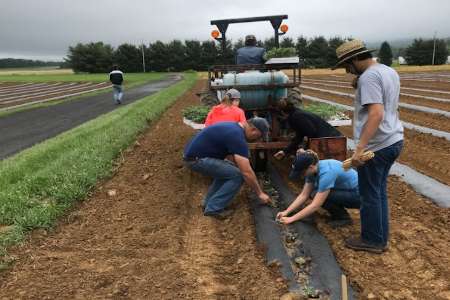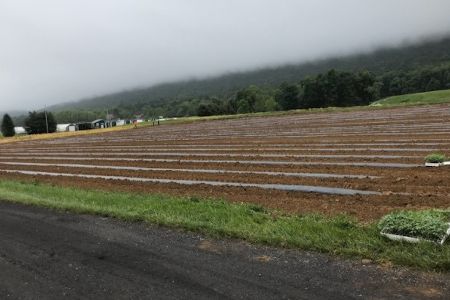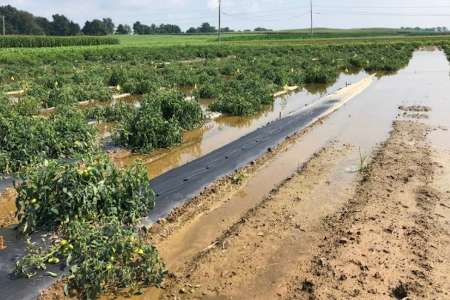
Setting epigenetically modified tomato plants, in 2018. Researchers believe this is the first true demonstration of an agriculturally amenable epigenetic breeding method. They say the technology is ready to be deployed immediately by agricultural plant breeders.
The MSH1 gene gave researchers access to the pathway controlling a broad array of plant resiliency networks, explained Mackenzie, who is the Lloyd and Dottie Huck Chair for Functional Genomics and director of the Plant Institute at Penn State. “When a plant experiences a stress such as drought or prolonged extreme heat, it has the ability to adjust quickly to its environment to become phenotypically ‘plastic’ — or flexible,” she said. “And, it turns out, it ‘remembers.’”
The finding that those “remembered” traits passed from the roots through the graft to the top of the plant — published today (Oct. 22) in Nature Communications — is hugely important, Mackenzie pointed out. The grafted tomato plants involved in the research produced seed that resulted in progeny that were, on average, 35% more productive — a stunning outcome, she noted. And that growth vigor persisted in the progeny over five generations in the research.
The plants are hardier, too, according to Mackenzie. During a component of the study at Penn State’s Russell E. Larson Agricultural Research Center in 2018, storms dropped more than 7 inches of rain in August, flooding the tomato fields. The pooled water wiped out plants that were part of other research trials. However, the plants that were the offspring of the grafted plants with the epigenetically manipulated rootstock mostly survived — and then they thrived.

This field at Penn State's Russell E. Larson Agricultural Research Center was used for the research. Epigenetically-modified tomato plants in the study, shown in the right foreground here, were also grown at Thonotosassa, Florida and Huasna, California.
The progeny of the grafted plants also showed superior survivability in the other field trials conducted in California and Florida.
The research is the first true demonstration of an agriculturally amenable epigenetic breeding method, Mackenzie said, adding that the technology is ready to deploy immediately.
“Everything we're doing, any plant breeder in agriculture can do, and now we've shown on a large scale that it has agricultural value. It's ready to go — a breeder could read about this and implement the system to improve his or her variety,” said Mackenzie.
Also involved in the research at Penn State were: Michael Axtell, professor of biology; Xiaodong Yang, assistant research professor of biology; Robersy Sanchez, associate research professor of biology; and Hardik Kundariya, graduate student in biology; Samuel Hutton, University of Florida; and Michael Fromm and Kyla Morton, EpiCrop Technologies, Lincoln, Nebraska.
The work was supported by funding from the National Science Foundation, the National Institutes of Health and the U.S. Department of Agriculture’s National Institute of Food and Agriculture.

During a component of the study at Penn State in 2018, storms dropped more than 7 inches of rain in August, flooding the tomato fields. The pooled water wiped out plants that were part of other research trials, however the tomato plants that were the offspring of the grafted plants with the epigenetically-modified rootstock mostly survived.
Source : psu.edu